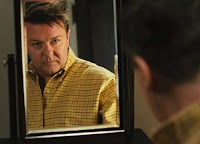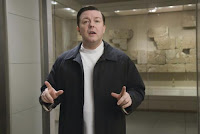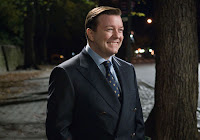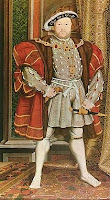 rs can view their auditions and feedback from casting directors afterwards! I just wrote a piece for them on the top five things that can instantly improve your auditions. All of these are pretty common sense, but I think that they are easy to forget (and you can never hear them enough) so I've included them in the EEAS blog!
rs can view their auditions and feedback from casting directors afterwards! I just wrote a piece for them on the top five things that can instantly improve your auditions. All of these are pretty common sense, but I think that they are easy to forget (and you can never hear them enough) so I've included them in the EEAS blog!1. Kn
 ow Your Material
ow Your Material If you are given the sides in advance – prepare them! Use the methods you have studied in your acting classes to analyze the script. (Every actor beginner or professional should always be enrolled in acting classes to keep their craft sharp!) If the audition is a cold reading then take the time you need to make sure you have the scene(s) down. Don’t go in until you are ready. Either way you should be extremely familiar with your lines and situations so your head isn’t buried in the script.
2. Know WHO You Are Auditioning For
When you get an audition one of the very first things you should do is some research! Look up who the major players (the director, casting director, writer and producers) are. See what else they have done - you are likely to get a better feel for the project and what they might be looking for.

3. Know WHAT You Are Auditioning For
Or, in other words, know the genre. Each genre requires a different style of acting, and knowing whether you are auditioning for a sitcom, a single camera comedy, a drama, etc can help immensely.
4. Professionalism
The “industry” is a business and you should treat it that way! Always be on time. (Yes, even in LA you have to be punctual. Factor in plenty of time for traffic even if there might not be any.) Be respectful to your auditioners and your fellow actors. Dress appropriately… even if you are dressing the part. Have a crisp clean copy of your headshot and resume, not a wrinkly unstapled one. Nothing says “Beware - Don’t hire me!” more than a rude, sloppy actor.
5. Nail yo
 ur Slate
ur Slate Finally, first impressions are so important. And your first on-camera impression is the slate. Don’t fidget or look at your script or play with your hair or pick your nose (trust me I have seen all of these and worse!). Make sure to portray confidence, affability, professional and personality! And SMILE!


 But this is not always the case. Take for instance
But this is not always the case. Take for instance 









 As we can see in these stills from Ghost Town, Gervais excels at unique, uninhibited, quirky, funny reactions. And, as I am sure you can guess, his reactions add tremendously to the comedy of the film. But looking at these stills out of context doesn't address one important fact: simply making funny faces is not reacting. Making funny facial expressions for the sake of it isn't a good idea, and often when actors do this they comes across as over acting. The reactions have to be in response to something and they have to be true to the character. In Ghost Town, the character Dr. Bertram Pincus definitely would sneer, scowl, snort, snip, scoff, mock, humph, guffaw and occasionally smile. So as we see in the film, Gervias isn't just over acting, he's reacting. And that's why this comedy is definitely something to laugh about!
As we can see in these stills from Ghost Town, Gervais excels at unique, uninhibited, quirky, funny reactions. And, as I am sure you can guess, his reactions add tremendously to the comedy of the film. But looking at these stills out of context doesn't address one important fact: simply making funny faces is not reacting. Making funny facial expressions for the sake of it isn't a good idea, and often when actors do this they comes across as over acting. The reactions have to be in response to something and they have to be true to the character. In Ghost Town, the character Dr. Bertram Pincus definitely would sneer, scowl, snort, snip, scoff, mock, humph, guffaw and occasionally smile. So as we see in the film, Gervias isn't just over acting, he's reacting. And that's why this comedy is definitely something to laugh about! 






 Lately I have been riveted by
Lately I have been riveted by 

